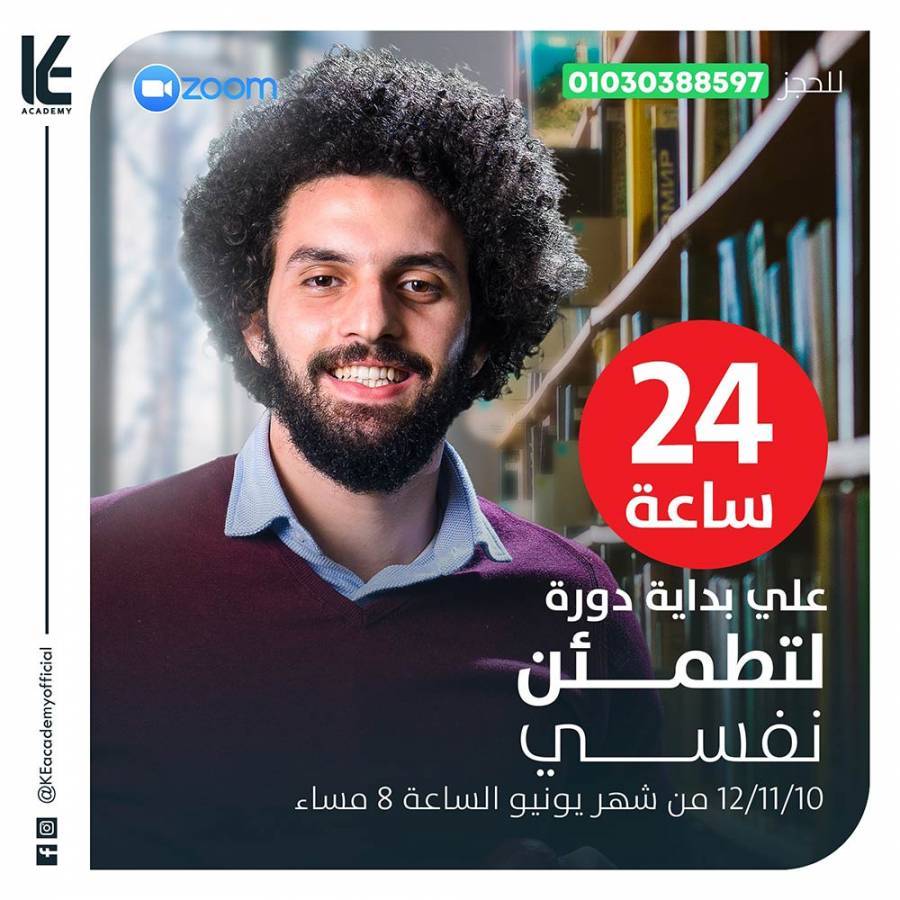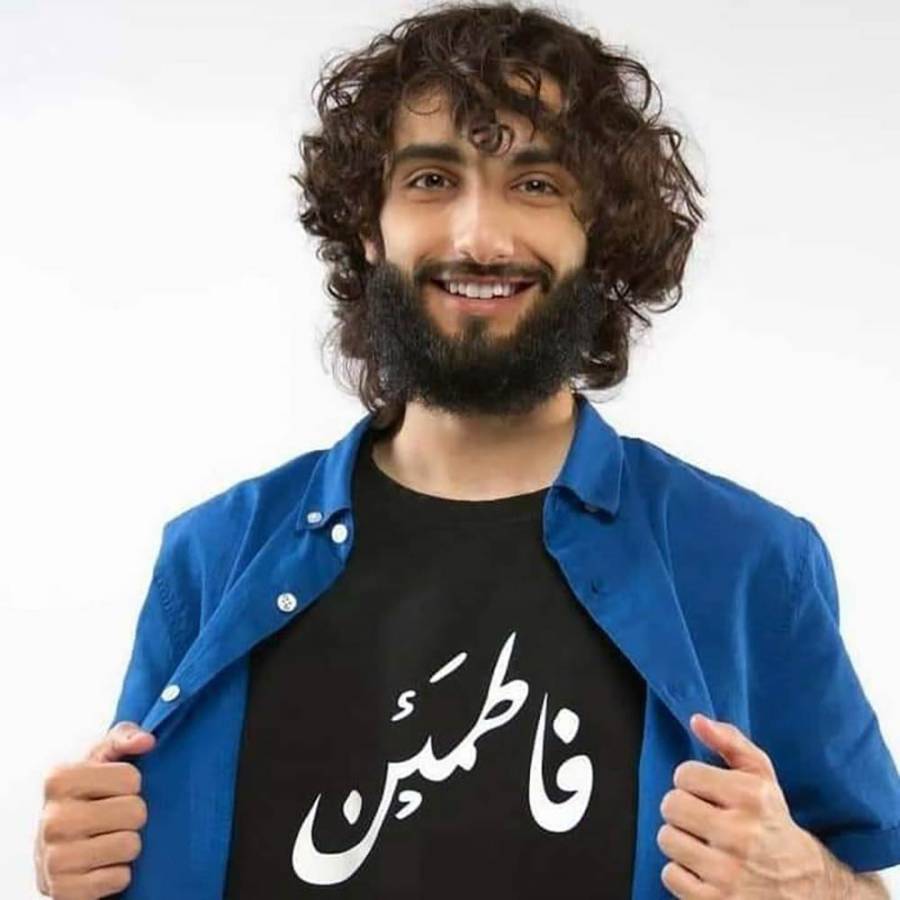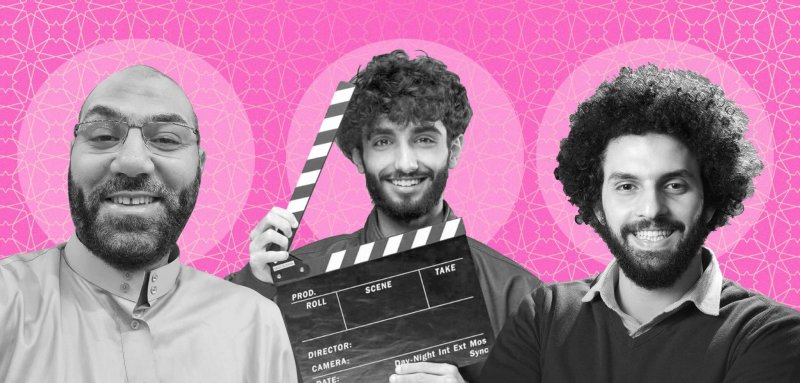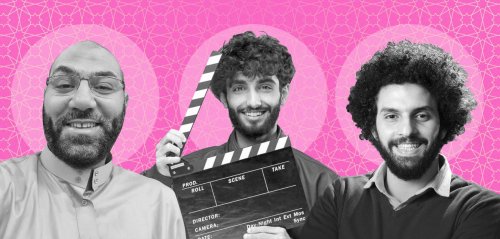Over the past decades, Muslim piety has witnessed a number of qualitative transformations that continue to be present to this day. Perhaps the most prominent manifestations of it today is the emerging phenomenon of “Islamic influencers”, which represents a new type of religiousness: one that is integrated with globalization, is based on a secular vision wrapped in an Islamic preface, combined with the values of Western modernity, and is subject to the values of a capitalist market... Therefore, they did not only turn Islam into a product that is targeted to the public, but they also repositioned its religious placement in a space governed by the market’s fluctuations.
A new piety
The ongoing phenomenon of “Islamic influencers” varies, in many respects, from the model of “the Islamic common market” theorized by Patrick Heaney. An Islamic influencer does not attempt to compensate for political failure with economic success. Rather, he focuses primarily on introducing a new religiosity that is loaded with living conditions and can adapt to its changes.
For instance, it’s okay for this influencer to call you to perform prayer, recite ‘dhikr’ (Islamic oral prayer), do ‘duʿa’ (supplication), as well as listen to religious sermons, but at the same time he would be wearing a global brand (marketing), and he may even encourage you to buy it as well. This has motivated many to enter this field — not in order to provide Islamic content and promote a true Islamic message, but to gain fame and achieve worldly success, even at the expense of dumbing down the religion and presenting a reduced Islam.
With the emergence of Islamic influencers, Islam has been emptied of its substance and content, in the midst of attempts to cling to its luster in order to adapt to the market and what the followers want, in addition to the fact that social media users and audiences are more inclined towards the type of religiosity that’s inexpensive. They like those who offer them a religiousness that is easy, effortless, lenient, and subject to changes in mood.
Undoubtedly, the religiosity model presented by these influencers will not necessarily remove distance from religion, or any separation from it, but will rather give the audience a sense, even if illusory, of being religious and a peace of mind.
It is noticeable that, in the new religious model that is represented by the phenomenon of Islamic influencers, there is a lack of adherence to identity, as well as an absence of the ideological aspect, and the subjugation of religiosity to the mechanisms of supply and demand.
Islamic influencer topics
We find a remarkable similarity in the content of the discussions that are raised by most Islamic influencers, to the point of imitation. In general, all the discussions revolve around spirituality, individual behavior, and presenting a happy, cheerful religiosity that is far from intimidation and reprimand. A religiosity that dominates the love of Allah over fear, in addition to some thrilling stories that are full of suspense, seek to attract the audience, and focus on adapting to the requirements of modern life, instead of reducing interest in worldly matters.
The rhetoric of Islamic influencers steers clear of any jurisprudence or political aspects, and of addressing the concerns of Islamic nations and people or any issues of reform concerning the current reality, and does not pay any attention to state issues as well as human rights and reform issues. Instead, it focuses on isolation, offering a religiosity that appeases and is reconciled with the status quo.
Therefore, one of the main features of the discourse of Islamic influencers is its focus on the individual, as opposed to the group. They do not view Islam as a religion that rejects oppression and stands against tyranny, instead, they present capitalist moral values that are integrated with the world rather than ones that face-off with it, and thus Islam is presented to the public as a component of a ‘moral market’.
For example, there is no talk of encouragement and intimidation in religion, as opposed to focusing on emotional religiosity, individual faith, and religious pleasure under the market system. “You do not need to change. Do not berate or blame yourself, you are good, and what you lack is happiness”; This is how an Islamic influencer tries to present a soft rhetoric that focuses on love and on man’s pursuit of happiness based on market references, and not religious references.
A religiosity seeking temptation
It seems that the phenomenon of Islamic influencers has become a clear expression of the aspirations of a new generation, since the view of religion and religiosity has become different than what had previously been. An Islamic influencer has nothing to do with Islamic movements, nor is he a promoter of any of the old trends. And if he happens to line up with the new preachers in some features, he is still quite different from them in many characteristics. The majority of the Islamic influencers have not received any regular religious schooling or education, but rather having received a normal civic education, so they primarily rely on random self-education.
An Islamic influencer adheres neither to traditional dress nor to the traditional language, but rather wears clothes in the Western ‘casual’ style, and sports a modern, stylish beard and comforting facial features. His manner of delivery is marked by a sort of emotional drama, and he uses a colloquial language mostly common in popular circles, sometimes filling his speech with English terms. But his speech is simple and delicate in presentation, full of happiness and love, far from reality and real social problems, and completely reconciled with the capitalist world. He is also fluent in dealing with social media, and uses excitement and elements of suspense on the platform, and is therefore defined by renewal and being able to adapt to new developments.
What is worthy of note is the young age of Islamic influencers. With his young age, we see them comfortably barge into the field of fatwa, despite the fact that they are completely ignorant when it comes to the complex aspects of jurisprudence. Therefore, when one of them attempts to approach some specialized religious matter in a more in depth manner, the lack of depth can be clearly seen in the incoherent reasoning and theorizing due to the absence of any legitimate formation.
Trends and “Fatwas”
One of the most prominent faces among Islamic influencers is Dr. Amir Mounir. He focuses primarily on the Islam that young people are looking for, such as “The Seven Rules of Love”, “Masturbation”, “The Secret to Answered Prayers”, and “6 Ways to Increase Your Livelihood”, along with quick and easy fatwas. In many cases, he goes along with the current ‘trend culture’, such as commenting on the dresses in the ‘El Gouna Film Festival’, the ‘Bent El Geran’ song, and many others.
Islamic influencers represent a new type of religiousness: one integrated with globalization, based on a secular vision wrapped in an Islamic preface, combined with the values of Western modernity, and subject to the values of a capitalism
Mounir’s rhetoric is characterized by a light sense of humor, along with an ease of speech, so much so that he uses the mainstream words and phrases that are commonly used by young people nowadays. Also, his attempt to adopt an ethical approach gives him an advantage over his other influencer peers. For example, in some of his videos, he tries to link a person’s pleasure and enjoyment in life with religiosity, saying: “The one who pleases Allah is someone whose heart is attached to Allah and lives a happy life... Having the blessing of Allah equals a happy life in this dunya (temporal world), regardless of what may be in it.”
Mounir participates in various advertising and marketing activities, such as management and marketing for programming, car showrooms and exhibitions, and others. He also gives religious “courses” and development programs, such as a program called “The Answer”, which requires a cash subscription, and where — according to him — he tries to change the relationship of young people with religion. There is also another program called “The City of the Strong & Mighty”, where he talks about bullying and which also requires a subscription, in addition to lectures that talk about the “Art of Choosing a Life Partner”, self-confidence, and others. He also published a book entitled “To Allah”, in which he placed himself as a marketing brand on the book’s cover photo.

Mounir has more than five million followers on his official Facebook page, and the vast majority of his audience are teenagers and young adults. Despite his reluctance to talk about political or economic affairs, he sometimes tries to depict reality with religious stories and sayings, the way he did during the recent dollar crisis. Instead of criticizing the policies that brought about this situation, he opted to come up with ways to adapt to these circumstances and see it as something with no negative impact on people’s lives.
The religiosity of human development
Kareem Esmail is yet another example. He is greatly influenced by the pioneers of American human development, but he wraps the content that he provides in an Islamic framework, embodying the desire to combine the call to Islamic morals and self-development, but by relying on the literature and theses of American human development and the market.
Esmail raises many topics, such as renewing the energy of belief in God, friendship between young men and women, and other things that would usually attract the attention of teenagers. However he focuses more on the concepts of individual worldly success, ambition, passion, and steps to happiness, and then links these concepts with religiosity. He also gives expensive “courses” about the balance of life and mental health that are attended by hundreds.

In an episode that he broadcast on YouTube, he says: “Our goal is to let people improve their mental health… Most of the causes of sadness, depression, mental discomfort, and psychological distress come from religious matters… When we understand religion correctly and live it right, we will improve our mental health.”
Esmail has nearly two million followers on Facebook, and 750 thousand subscribers to his YouTube channel. He published a book called “A Psychological Break”, in which he focuses on concepts like happiness and money, but the main idea in it is combining human development with religiosity. What may distinguish him from others is his audience, which mostly consists of young people who belong to the higher social strata and need religiousness without any losses or deprivation on their part. He makes them have a desire in life, and plants within them an inclination towards individual faith.
Islamic influencers’ rhetoric steers clear of politics, jurisprudence, or addressing the concerns of the masses. It pays no attention to state, human rights, and reform issues, instead focuses on isolation and offering a religiosity that’s reconciled with reality
Merging self-motivation with religiosity
The Arab Gulf states have witnessed the rise of influencer Omar Al Odah, a young man with around 5.5 million followers on Instagram, five million on Facebook, and more than half a million subscribers to his YouTube channel.
In the beginning, he provided a set of romantic thoughts with a religious aspect, and when he saw that they spread online and were met with acceptance among the youth, he focused on presenting a very idealized image of religiosity. Through a weak acting performance, he would start with a practiced tone of voice and would use sounds that are meant to create an emotional impact. Then he’d give a sermon that would interest teenagers, such as: ‘the path to happiness’, ‘do not despair’, ‘ignore as much as you can’, ‘guidelines about love and life’, ‘a message for every girl’, ‘be dear to yourself’, ‘jealousy’, and others. He also focuses a lot on duʿa videos, as well as on advice he gives to his young Muslim sisters, but what is remarkable is that he gives ‘duʿa’ advice in a way that is remindful of the Kiki dance!

The young man summarizes the quality of the content that he presents by saying that it aims to merge self-motivation with religiosity. He has also published a number of works that have achieved high sales, such as the book “Fatma'en” and the book “The Mighty City”. His works talk about perseverance, overcoming failure, and achieving dreams, as well as linking religious commitment to worldly happiness and success.
Al-Odah was born in 1998, and what’s remarkable is that he barged into the field of fatwas on the popular Tik Tok app, along with the many fatwas he issues on a daily basis. The vast majority of his audience is considered to be mostly teenagers and young adults.
Market islamization
The problem is not with the ideas raised by Islamic influencers, such as self-motivation, worldly success, and so on, but the problem is in the commodification of religious discourse and awareness. The word “Islamic” is now used in everything: Islamic “dieting”, Islamic fashion, Islamic disco, Islamic swimsuits, and Islamic yoga...
The term ‘Islam’ has been utilized to serve the market, and had been made to go in line with different clothing and industries... It may be public awareness that made the Islamic influencers move according to what the market and the public demand, but the problem remains in the trading of religion and assuming that God sent it down in order to achieve worldly gains for humans, albeit in a different way than what the rest of the Islamists are doing.
Raseef22 is a not for profit entity. Our focus is on quality journalism. Every contribution to the NasRaseef membership goes directly towards journalism production. We stand independent, not accepting corporate sponsorships, sponsored content or political funding.
Support our mission to keep Raseef22 available to all readers by clicking here!
Interested in writing with us? Check our pitch process here!






